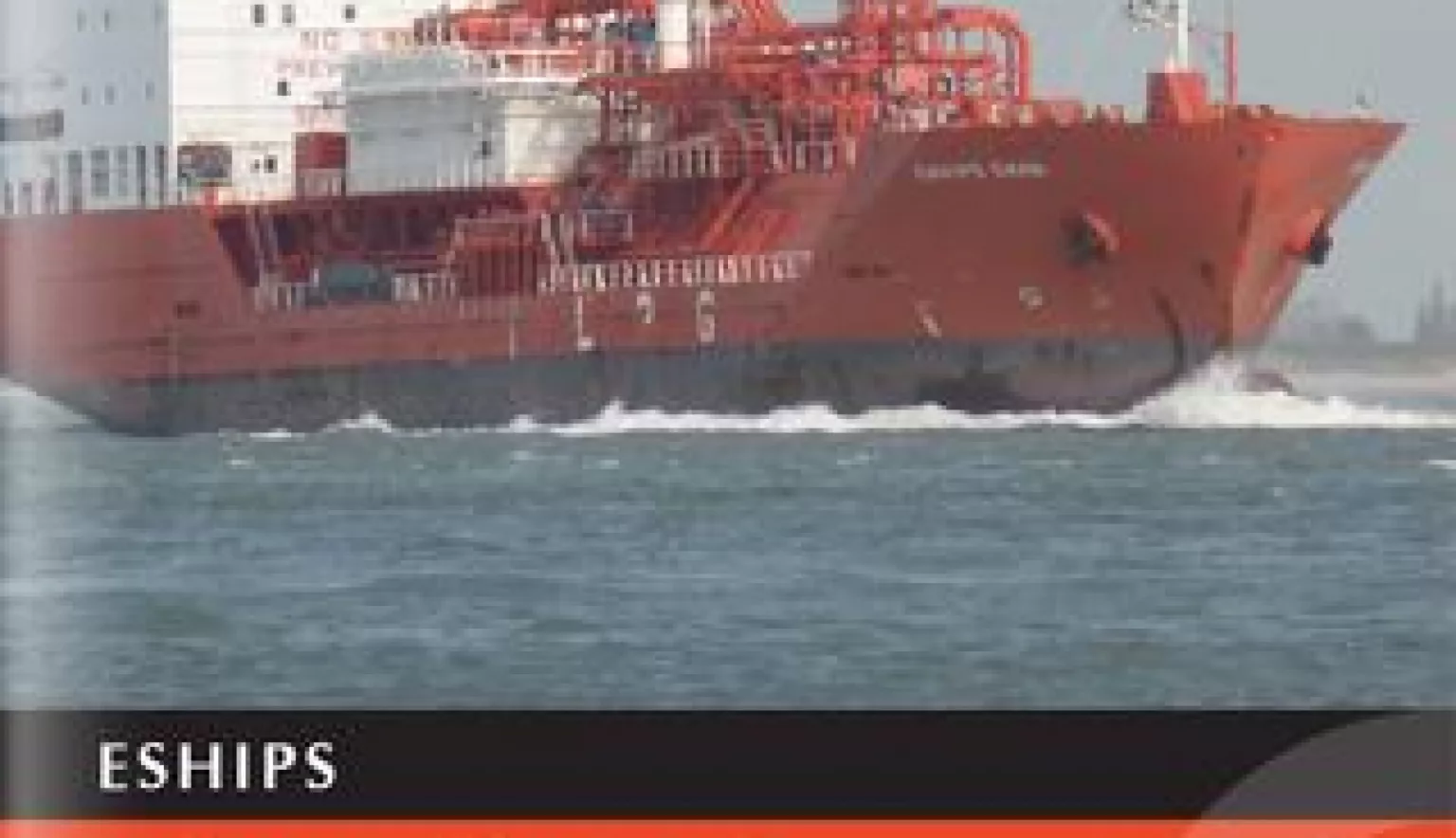Upon celebrating the 20th anniversary of leading UAE shipowner and operator, ESHIPS, the Company claims its commemorations have largely been “business as usual”. However, for this pragmatic and aspirational enterprise, “usual business” means success and continuous development.
ALWAYS ON COURSE
Established in 1996 as an offset Company in conjunction with Norway’s Klaveness Group as a dry bulk shipping Company, ESHIPS has grown under numerous different guises and ownerships in the intervening years; especially following its move into the tanker shipping industry in the early 2000s.
Further ownership inputs from the likes of Oman & Emirates Investment Holding, Mubadala Development Company and Invest AD led up to 2008, where Chief Executive Officer, Capt. Roberto Zanca recalls a pivotal rebranding and restructuring.
“In 2008, management proposed a new business of transhipment in the Arabian Gulf servicing Emirates Steel and other GCC steel companies,” he notes. “This involved significant investment at which point the two UAE shareholders bought out the Oman Company, and at this point ESHIPS became a UAE Government Company.”
Further name changes, acquisitions and sales from the likes of Mubadala and the once sole-owner, Oldendorff eventually culminated in 2016 when the latter extracted all of the dry bulk business from ESHIPS to leave the Company as a purely tanker-oriented entity sold to Tristar Transportation LLC.
“ESHIPS’ fleet at the time of acquisition consisted of four 13,000 dwt (deadweight tonne) chemical tankers and two LPG 6,500 cubic metre vessels,” Zanca explains. “This complemented the existing bunker barge and crew boat fleet of Tristar who also have six newbuilding medium range tankers all to be delivered during 2016. It is the intention to integrate all of the shipping business under the ESHIPS brand.”
Serving the majority of oil majors through this proposition, the Company’s policy of efficient operations and globally-significant trading has led the business as far afield as West Africa, the Far East and Europe.
“If the project makes both commercial and economic sense then there are no geographical restrictions,” Zanca continues. “We consider ESHIPS’ geographical position ideal to build up commercial relationships with both East and West partners, and being in the UAE means we are never too far away from any major shipping hub to both sides, and this is an ideal situation for our commercial activities.”
FINANCIALLY SAFE
As a major oil logistics Company themselves, Tristar’s guidance is likely to help ESHIPS in streamlining its offering to a more specialised market, with a move to longer-term fixtures with oil majors.
“This will smooth out the Company’s cash flows, providing the required stability for shareholders,” Zanca adds. “In other words, operating ESHIPS’ fleet in a more financially safe manner, with limited, if any, exposure to the volatility of the market is one of the main strategies and philosophies which will enable ESHIPS to be successful.”
While a history in the dry bulk domain has enabled ESHIPS to formulate a series of key partnerships and expertise applicable across the board, the tanker business is slightly different with more of a reliance on these oil major relationships; including with the likes of TOTAL, Shell, BP and Statoil to name a few. There is also more of an emphasis on longevity and sustainability within its chartered vessels in this business sector in order to meet more high profile requirements.
Zanca says: “In this regard, some of ESHIPS’ vessels have been built to meet specifications requested by oil majors, and, after construction, are chartered to that oil major in the long-term.
“[For example], the six medium range tankers ordered by Tristar are part of the Shell Silver Project whereby up to 50 vessels were ordered by Shell, and various owners have taken a portion of them with long-term charters back to Shell.
“For ESHIPS, the first two of these vessels will be delivered in May, 2016 with the final vessel coming before the year-end.”
The business model and strategy of ESHIPS under the new shareholder structure also leaves the door open to additional investment in potential projects to enhance the chances of not only an acceptable yearly yield, but a more sustainable guaranteed cash flow.
“ESHIPS is therefore always on the lookout for projects in-line with the above strategy and is ready to move quickly should the right opportunity arise.”
RELIABLE AND QUALIFIED
While the ownership arrangement has been relatively interchangeable over the past decade, the internal consistency strived for within the Company’s workforce is a key philosophy which has been rewarded with some of the most qualified and experienced employees available in the local market.
“Our philosophy is that we hire good and qualified people not to tell them what to do but to allow them to bring their ideas so that they can suggest to us what is better to do,” Zanca explains. “Training and attendance at forums and seminars is always encouraged within the Company and we can therefore say that our staff are always updated on the latest developments in terms of new regulations and market intelligence.”
Market intelligence covers all manner of industry trends and the adherence to them; more recently embracing areas of environmental impacts, health & safety and oil price fluctuations. The latter in particular has called for sector operators to fall back on their versatility and adaptability, but these just so happen to be two of ESHIPS’ greatest strengths.
“The shipping business is, by definition, volatile and fluctuates due to many different factors,” Zanca says. “At ESHIPS we pay attention to the details, and are thus ready to take advantage of this fluctuation and perform to our best at any given time.
“We consider ESHIPS as a reliable and qualified shipping operator and our clients and partners are well aware that the quality of services is the highest standard in the industry. We do what we know and this is appreciated by our clients.
“I now see ESHIPS well positioned for growth in terms of volume and business and we are exploring the possibility to invest in various shipping sectors to take advantage of the specific market conditions. It’s more than just a hope to imagine ESHIPS will double in size and be involved in two-thirds of all shipping segments over the next five years.”




















